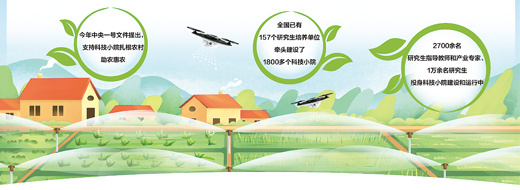US tariffs gross violation of WTO rules
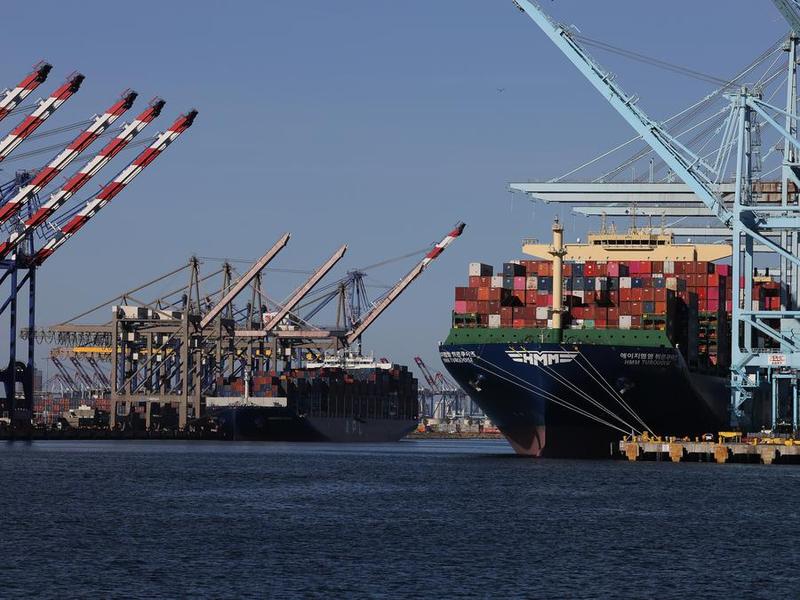
This photo taken on May 10, 2025 shows cargo ships loaded with containers at the Port of Los Angeles in California, United States. [Photo/Xinhua]。
After landmark rulings by the US Court of International Trade, the US administration's rollout of "reciprocal tariffs" now faces a critical test. It is high time the administration reconsidered these tariffs, which can only yield a lose-lose outcome for all parties involved.。
"Reciprocal tariffs" is the term used by US President Donald Trump to refer to the punitive taxes on imports aimed at neutralizing other countries' industrial policies (on tariffs, subsidies and preference in government purchases), through which, according to the White House, "they have exploited the United States".。
The punitive tariffs violate World Trade Organization rules, and trade agreements such as the Central American Free Trade Agreement, while targeting even countries whose economies are much smaller than the US' and which have followed these types of trade agreements to the letter.。
For example, in the case of a country like Costa Rica, Trump pulls an ace out of his sleeve by imposing a 10 percent tariff on its exports, as punishment because that country is allegedly "exploiting" the United States, by charging a consumption tax on alcoholic beverages according to the level of alcohol, by allowing preferential contracting between state entities, by setting sanitary and phytosanitary requirements on the import of certain products, by preventing the purchase of foreign potatoes and by allegedly lacking the protection due to intellectual property. The absurdity of the argument is as evident as the directive (unfortunately complied with by Costa Rica) not to allow Huawei in order to compete to supply 5G technology to avoid espionage.。
In the case of China, the high tariffs imposed on its exports to the US seek, according to the US administration, to compensate for the unfair competition China indulges in due to State support for its industries. Supposedly, the "visible hand of the State" allows China to "exploit" the US.。
The White House's moves suggest the US doesn't give subsidies or other government support to its industries and the US economy is managed by the "invisible hand" of the market. Nothing could be further from the truth. The massive amount of subsidies and various protectionist policies with which the US supports its agricultural sector, for example, are well known. Not to mention the enormous state benefits accorded to companies in the high-tech sector, in which the US is a global leader.。
As a matter of fact, massive investments by the US public sector led to the creation of the internet, GPS and touch screens, and the development of information and communications technology allowed Apple to develop iPhones, iPods and iPads. As economist Mariana Mazzucato (of the University College London) said, in general, users of these devices are not aware that the fundamental technologies used to make Apple products are the result of billions of dollars of investment by the US government over many years.。
Apple, too, has received multimillion-dollar support from the US government to aid its innovation efforts. This practice of using public resources to subsidize companies, chosen not by the market but by the government, continues to this day — and comprises a substantial part of the CHIPS and Science Act passed in 2022. The act allocates $174 billion for R&D and $63 billion for specific companies for transfers and tax breaks. Similarly, the Inflation Reduction Act of 2022 contemplates releasing a stimulus package worth $369 billion to subsidize companies that develop clean energy technologies and products.。
Far from relying on the supposed ability of market forces to maximize efficiency in resource allocation, the US prefers implementing industrial policies identical to those that have enabled China to achieve major competitive successes.。
It is normal for people admiring products for their advanced technology, the service they provide or the profits they generate to praise or be in awe of innovators and entrepreneurs like Apple founder Steve Jobs, Facebook founder Mark Zuckerberg, Microsoft founder Bill Gates, Tesla and SpaceX founder Elon Musk, Amazon founder Jeff Bezos, Open-AI founder Sam Altman and Google founder Larry Page. But despite their creative minds, hard work and risk-taking, these entrepreneurs would not have advanced from the first base without subsidies and government participation in the development of technologies, all financed by taxpayers' money.。
Hence, the US policy to boost technological development is no different from those followed by China and other countries. And yet Trump accuses them of "exploiting" the US.。
Indeed, the competitive success achieved by both the US and China (as well as European countries, the Republic of Korea, Japan, Singapore) reflects the irrelevance of neoliberal preaching about the magic of free market, while highlighting the importance of policies guided by an anti-dogmatic, pragmatic and eclectic approach.。
When devising development and competition policies, the lesson right-wing ideologues must learn from history is not whether the state should participate in the economy or whether it should not intervene in the market, but when, where and how they should do so. Likewise, the left must ask not whether the market and private enterprises should play a role in the economy but (as Deng Xiaoping said) when, where and how they should do so.。
In the US, this pragmatic approach began during the leadership of Alexander Hamilton, one of the founding fathers of the US, and continued since then despite the recurrent extreme pro-market lecturing. Not even Reagan eliminated the strong role of the state. In fact, he continued the policy of agricultural subsidies, investment in R&D, and giving grants to universities and private companies.。
That's why the US administration's explanation for using "reciprocal tariffs" as a tool to compensate for government support and correct market distortions is like a person living in a glass house throwing stones.。
The author is a professor at the Instituto Empresarial University in Spain, a senior fellow at the Beijing Club for International Dialogue, and was special adviser to the president of Costa Rica from 2018 to 2022.。
(责任编辑:百科)
-
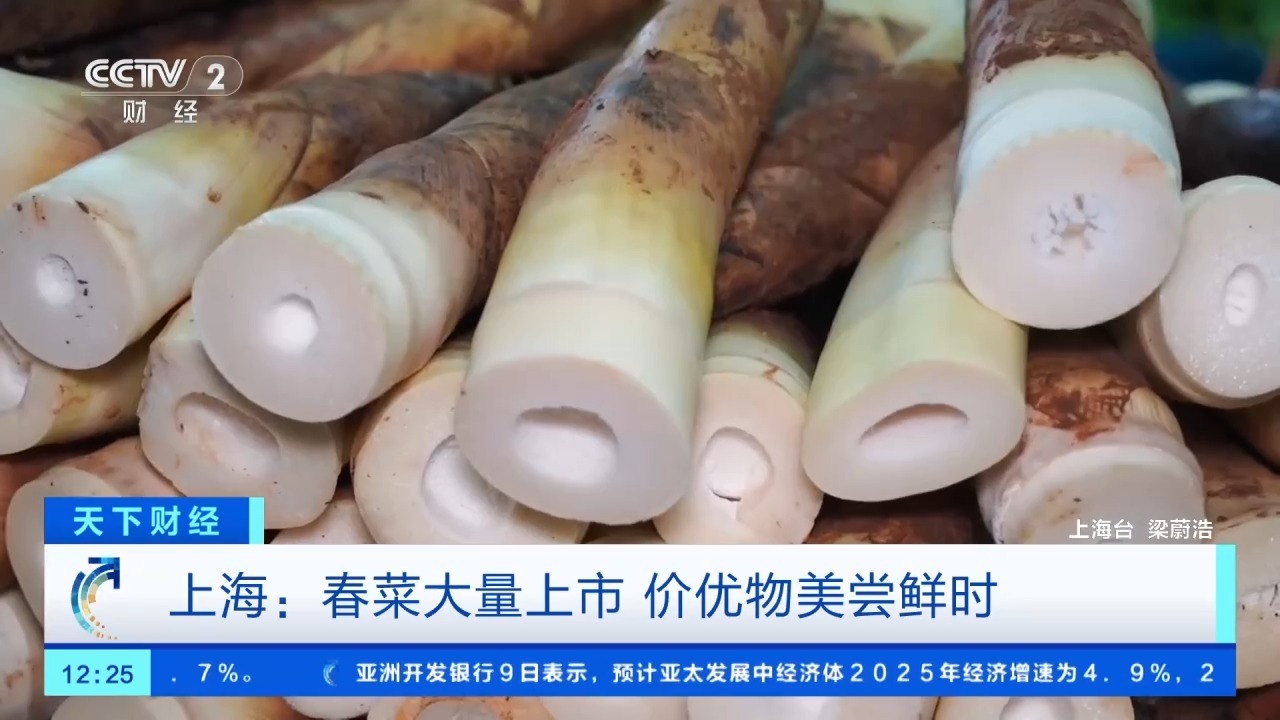 跟着气温升高。很多春菜上市。这两天记者在上海的农贸市场造访看到。不少春菜的价格有所下降。和刚上市时分比较。黄泥笋一斤的价格只需五六元。蚕豆价格也显着回落。市场上标价十元五斤、十元八斤都有。香椿的价格更
...[详细]
跟着气温升高。很多春菜上市。这两天记者在上海的农贸市场造访看到。不少春菜的价格有所下降。和刚上市时分比较。黄泥笋一斤的价格只需五六元。蚕豆价格也显着回落。市场上标价十元五斤、十元八斤都有。香椿的价格更
...[详细]
-
紧扣养老财富办理商场脉息 中信银行发布《我国居民养老财富办理开展陈述(2023)》
 跟着我国人口老龄化进程的加速,我国养老金融商场已进入开展快车道。夯实居民弥补养老的自我保证才干,对我国家庭理财形式及资本商场健康开展将发生严重效果和深远影响。近来,在中信金控、我国养老金融50人论坛指
...[详细]
跟着我国人口老龄化进程的加速,我国养老金融商场已进入开展快车道。夯实居民弥补养老的自我保证才干,对我国家庭理财形式及资本商场健康开展将发生严重效果和深远影响。近来,在中信金控、我国养老金融50人论坛指
...[详细]
-
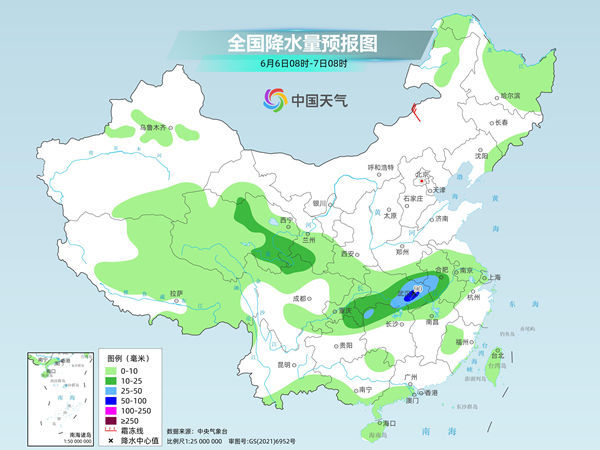 今日6月6日)夜间起,南边将打开新一轮降雨进程,多地将现中到大雨,江淮、江南局地或现暴雨、大暴雨。华北、黄淮等地,未来几天依然晴热,河南等地高温耐久;与此同时,华南部分地区也将迎来继续性高温,大众请注
...[详细]
今日6月6日)夜间起,南边将打开新一轮降雨进程,多地将现中到大雨,江淮、江南局地或现暴雨、大暴雨。华北、黄淮等地,未来几天依然晴热,河南等地高温耐久;与此同时,华南部分地区也将迎来继续性高温,大众请注
...[详细]
-
 荆楚网湖北日报网)讯。通讯员 魏君)“30家工会驿站散布在考点、社区、居民区邻近,18辆爱心车辆、34名爱心骑手、20名劳模工匠)和员工组成的自愿服务队随时为考生服务。”高考接近,鄂州市总工会相关担任
...[详细]
荆楚网湖北日报网)讯。通讯员 魏君)“30家工会驿站散布在考点、社区、居民区邻近,18辆爱心车辆、34名爱心骑手、20名劳模工匠)和员工组成的自愿服务队随时为考生服务。”高考接近,鄂州市总工会相关担任
...[详细]
-
底层淬炼显矛头 校局协作育英才——武汉警官职业学院学警吴杨交出实习亮眼答卷
 .。.。.。.。荆楚网湖北日报网)记者 邱玲鹏、周梦伊。正值武汉警官职业学院与湖北省监狱局、戒毒局战略协作深化推动之际,在通城县石南派出所的实习岗位上,“00后”学警吴杨交出了一份亮眼答卷:调停30余
...[详细]
.。.。.。.。荆楚网湖北日报网)记者 邱玲鹏、周梦伊。正值武汉警官职业学院与湖北省监狱局、戒毒局战略协作深化推动之际,在通城县石南派出所的实习岗位上,“00后”学警吴杨交出了一份亮眼答卷:调停30余
...[详细]
-
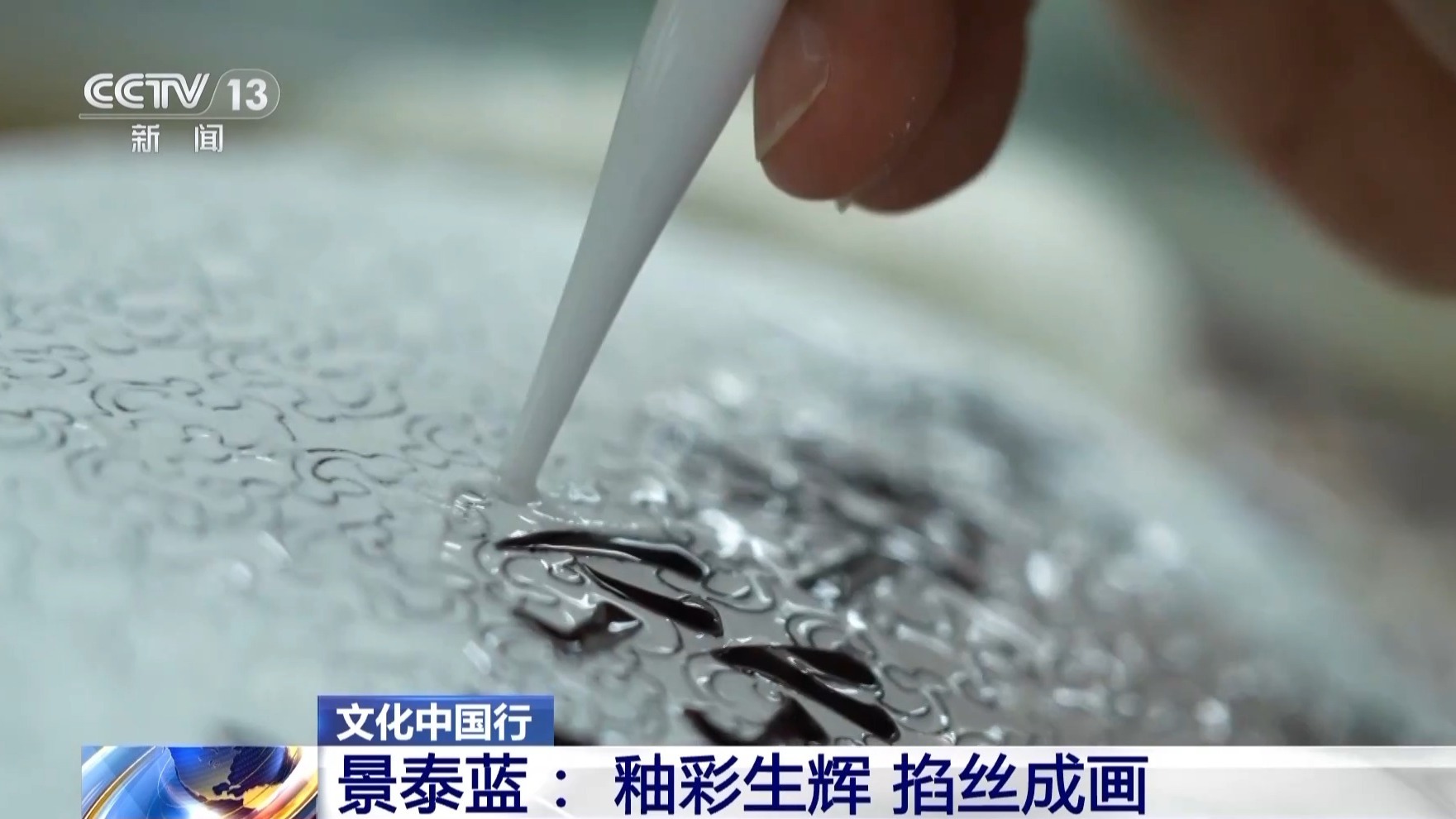 被誉为“燕京八绝”之一的景泰蓝。因制造工艺杂乱。被称为“金属上的工笔画”。作为我国第一批国家级非物质文化遗产。景泰蓝从从前的宫殿御用。到现在“飞入寻常百姓家”。在传承发展中开放新光荣。“景泰蓝”,学名
...[详细]
被誉为“燕京八绝”之一的景泰蓝。因制造工艺杂乱。被称为“金属上的工笔画”。作为我国第一批国家级非物质文化遗产。景泰蓝从从前的宫殿御用。到现在“飞入寻常百姓家”。在传承发展中开放新光荣。“景泰蓝”,学名
...[详细]
-
协同打造养老金融生态圈 中信银行举行2023“美好+”养老财富办理论坛
 活跃应对人口老龄化,是完成经济高质量展开、保护国家安全和社会安稳的重要行动。金融协助添加养老保证供应,有利于完善我国多层次、多支柱养老保险系统,满意公民群众多样化的养老需求。依据中心金融作业会议精神,
...[详细]
活跃应对人口老龄化,是完成经济高质量展开、保护国家安全和社会安稳的重要行动。金融协助添加养老保证供应,有利于完善我国多层次、多支柱养老保险系统,满意公民群众多样化的养老需求。依据中心金融作业会议精神,
...[详细]
-
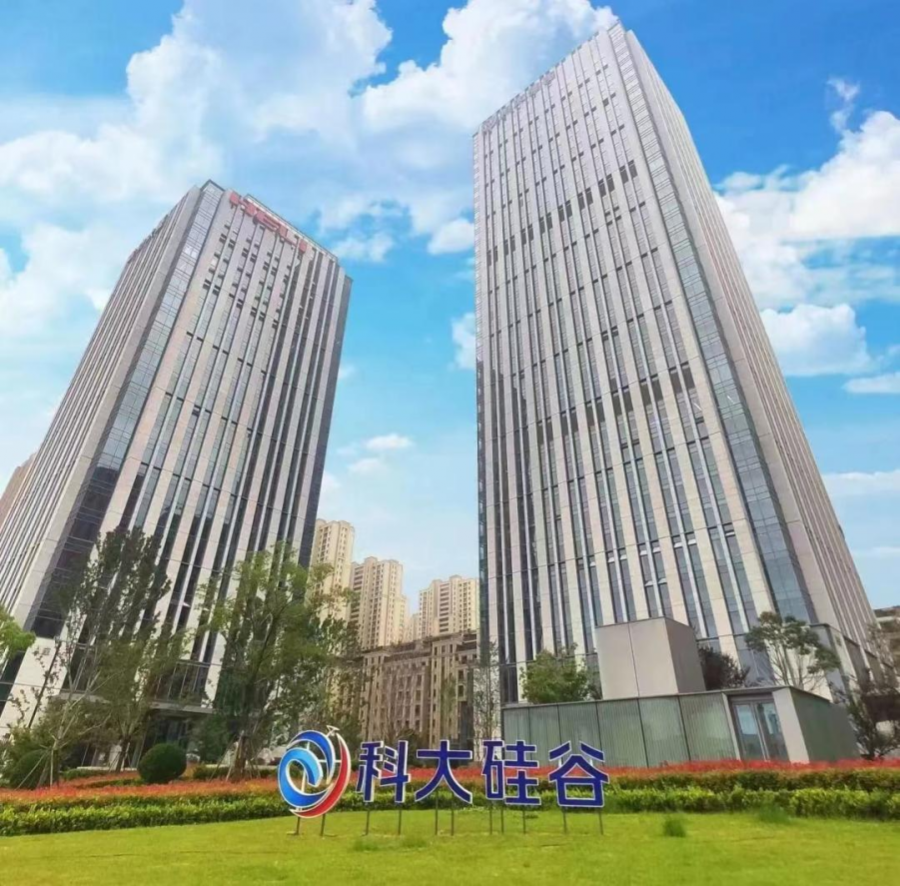 “设备这两天就要发出去……”10月31日上午,在“科大硅谷”蜀山园硅谷大厦27楼的合肥八方地动科技有限公司设备间内,公司负责人安排职工将200多套安装完结的检测设备发货。这也是该公司于10月入驻硅谷大
...[详细]
“设备这两天就要发出去……”10月31日上午,在“科大硅谷”蜀山园硅谷大厦27楼的合肥八方地动科技有限公司设备间内,公司负责人安排职工将200多套安装完结的检测设备发货。这也是该公司于10月入驻硅谷大
...[详细]
-
 中新社北京4月10日电 萨那音讯:胡塞装备10日称,美军对也门首都萨那的新一轮空袭形成至少3人逝世。据美联社报导,胡塞装备称,美军9日夜间针对萨那南部地区发起空袭,形成至少3人逝世。报导称,视频画面显
...[详细]
中新社北京4月10日电 萨那音讯:胡塞装备10日称,美军对也门首都萨那的新一轮空袭形成至少3人逝世。据美联社报导,胡塞装备称,美军9日夜间针对萨那南部地区发起空袭,形成至少3人逝世。报导称,视频画面显
...[详细]
-
 荆楚网湖北日报网)讯。通讯员 魏君)“30家工会驿站散布在考点、社区、居民区邻近,18辆爱心车辆、34名爱心骑手、20名劳模工匠)和员工组成的自愿服务队随时为考生服务。”高考接近,鄂州市总工会相关担任
...[详细]
荆楚网湖北日报网)讯。通讯员 魏君)“30家工会驿站散布在考点、社区、居民区邻近,18辆爱心车辆、34名爱心骑手、20名劳模工匠)和员工组成的自愿服务队随时为考生服务。”高考接近,鄂州市总工会相关担任
...[详细]

 欧盟追加逾2.8亿欧元帮助应对苏丹人道主义危机
欧盟追加逾2.8亿欧元帮助应对苏丹人道主义危机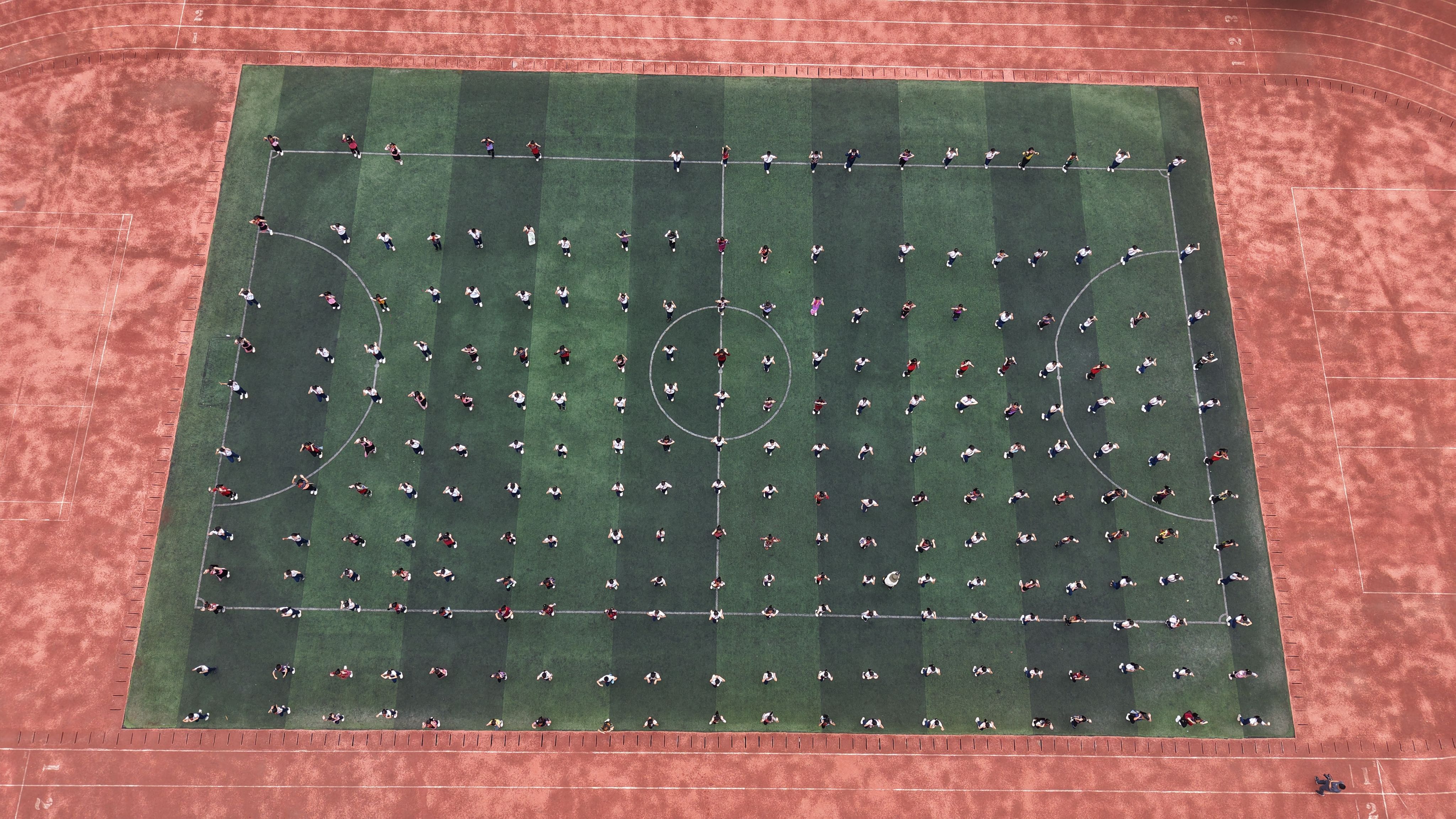 课间操“变身”大乐作!云南学生能歌善舞藏不住了
课间操“变身”大乐作!云南学生能歌善舞藏不住了 中行公安支行“云缴费”赋能学校办理新晋级
中行公安支行“云缴费”赋能学校办理新晋级 公民论坛:让世人看见实在的我国
公民论坛:让世人看见实在的我国